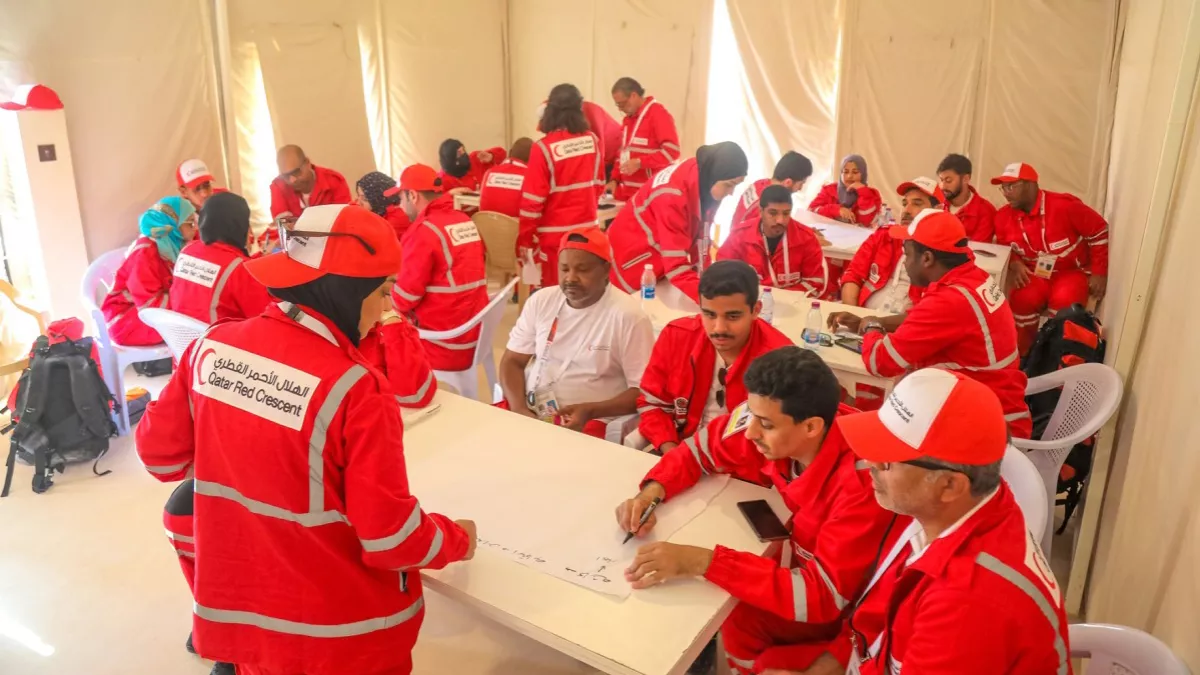9th Disaster Management Camp; fourth day explained the daily training programme and assigning teams and tasks
25 Feb 2023
News
The fourth day of the 9th Disaster Management Camp (DMC-9) organised by Qatar Red Crescent Society (QRCS) under the patronage of the Ministry of Public Health (MoPH), yesterday was held to explain the daily training programme and assign teams and tasks.
The Yellow Team attended a lecture on emergency planning and operations room, including QRCS volunteers, civil service personnel, and representatives of National Societies.
The morning lecture was delivered by trainer Mamdouh Al Hadid from Jordan National Red Crescent Society (JNRCS), and assistant trainers Abdel Aziz Morad and Hamad Abdel Aziz from QRCS.
It was supervised by Celine Al Khoury from the International Federation of Red Cross and Red Crescent Societies (IFRC).
During the lecture, the trainees were introduced to the theoretical and practical concepts and basics of disaster management at various stages — response, early recovery, mitigation, preparedness, and risk reduction.
El Khoury, a member of the Al Marqab team, which was created to monitor the quality of training for the teams, said, “I work as a senior climate and resilience officer at the IFRC Regional Office in Beirut. I have Bachelor of Science in Chemistry and Master of Science in Environmental Technology. Throughout my career, I have assessed the environmental impact of new projects, and I was hired by some municipalities of Lebanon to conduct studies on the impact of climate change on the natural environment, population, and various sectors in coastal areas.”
During yesterday’s evening training, the Voluntary Service group attended a theoretical lecture on safer access, given by the trainer Ali Al Hosh from the International Committee of the Red Cross (ICRC) and assistant trainer Dr. Abrar Haider from QRCS.
The lecture covered key features, areas, elements, and field practitioners of the safer access framework. The applied part involved a practical scenario on how to ensure safer access to those affected by disasters, as well as how to deal with armed militia attacks and other risks that may arise on their way to the target group.
Then, all the trainees attended an informative lecture at the Humanitarian Tent on “Problem Analysis and Decision-Making”, presented by Al Ali.
The purpose of the lectures was to develop the participants’ ability to analyse administrative problems, make choices, and take the right decisions towards the institutional goals.
